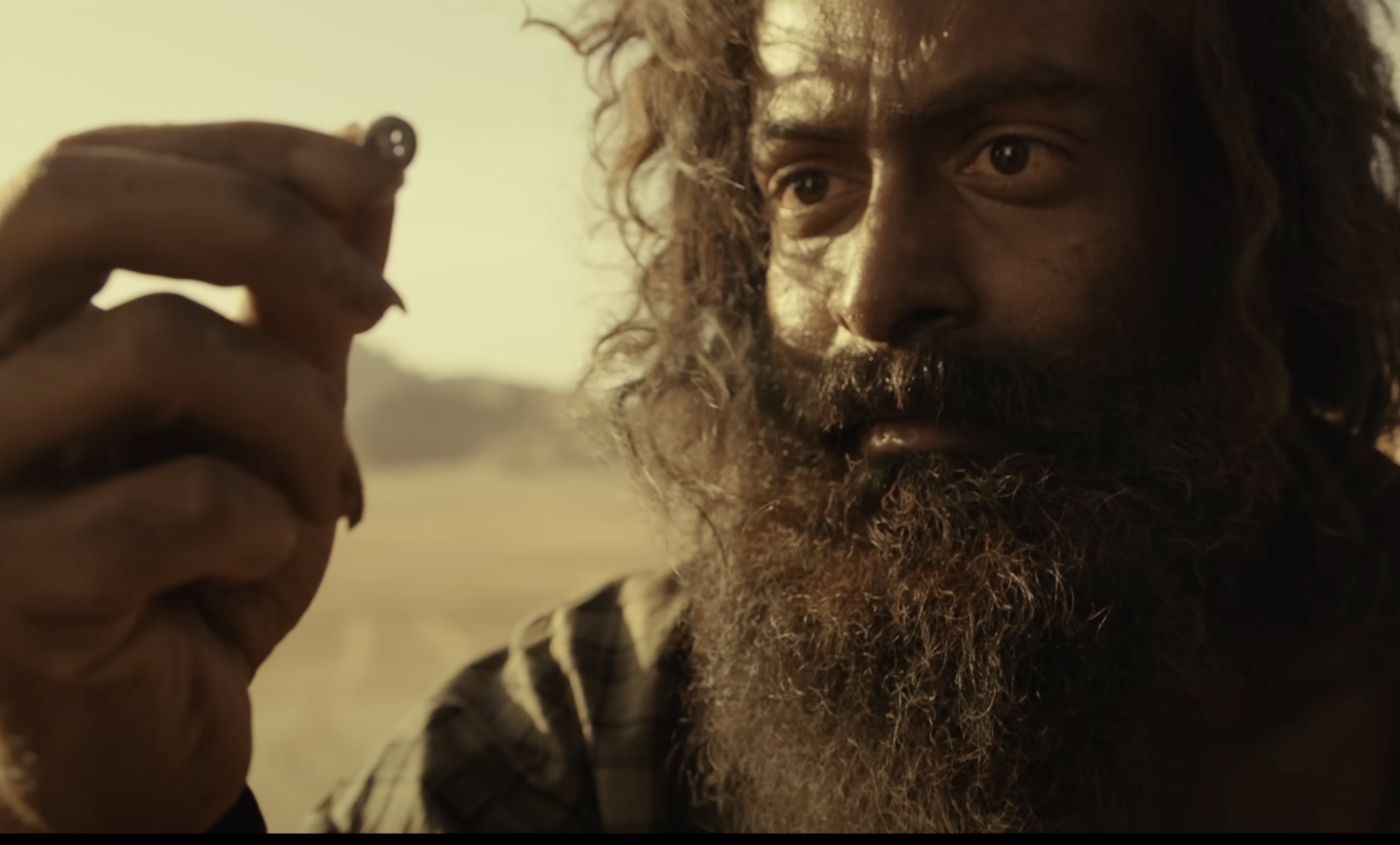It’s been more than two decades since I left the Persian Gulf, but the harsh, guttural utterance “Hey Hindi!” still rings in my ears.
It wasn’t long after I landed in Dubai, in 1989, that I first heard those debasing words in reference to the millions of Indians who work in the six autocracies that collectively call themselves the Persian Gulf.
Labour from India quite literally built the whole region, and yet, little has changed – despite the lip service paid by rulers on both sides. The Gulf sheikhs continue to confuse a language with a proud people.
This is the backdrop for the epic Aadujeevitham (The Goatlife, every breath is a battle), a Malayalam movie that opened in theatres, including in North America, on March 28.
However, the movie had not been cleared for release in five of the six countries of the Persian Gulf, except the United Arab Emirates.
It’s not hard to divine why: the portrayal of the Gulf’s inhumane kafala (sponsorship) system that has reduced millions of foreign workers to virtual slave labour is shocking and heart-wrenching. That such a system can be a feature of the 21st century in countries that are an integral part of international geopolitics (thanks to the Gulf’s petroleum reserves) tells us a lot.
That said, The Goatlife has a somewhat nuanced portrayal. There is one good Saudi who shows up in a Rolls Royce as the forced goat herder Najeeb (played by Prithviraj Sukumaran) tries to flee his cruel sponsor in the middle of the kingdom’s barren Najd desert. But, overall, the film is about a heartless system of indentured labour that has persisted for a long time, despite the advances in human and labour rights elsewhere.
The movie does a great job of showing the depths of depravity that drive sponsors to treat migrant workers worse than the goats and camels in their keep, depriving them of food, shelter and dignity, making no effort to understand each other or share a common humanity. Until the very end, both the sponsor and herder don’t speak a single word that is comprehensible to each other.
Over three hours, the director (Blessy Ipe Thomas) shoots Najeeb’s harrowing experiences in vivid detail – his sun-beaten, darkening visage, overgrown scraggly beard, calloused feet, parched, purple lips – set against the featureless desert landscape where it is dune after dune after dune of fine sand for miles around.
The film does a fine job of juxtaposing these wretched scenes against the hopes and dreams of Najeeb’s wife Sainu (played by Amala Paul), who’s also expecting their first baby. They have borrowed money to pay off an agent in their native village to organize this lifeline to Saudi Arabia, only to be duped the moment Najeeb lands at the airport there.
The film derives its name from the herd of goats and camels that Najeeb is supposed to feed and milk, although that is not what he signed up for. He finds tenderness in the goats. The agent in the Indian state of Kerala (where Malayalam is the mother tongue) promised him a job as a “helper” (which could mean anything from an office “tea boy” to a cook in a household), but something goes awry at the Saudi airport. The “sponsor” never shows up to claim Najeeb. Instead, a Saudi shows up, puts Najeeb in the back of a pickup truck and drives him to the middle of nowhere, leaving him amid a flock of goats and camels to learn the occupation of herding.
Fresh off the plane, Najeeb speaks no Hindi or Arabic and hence is subjected to unending misery. He calls out to God – the same God that his masters call out to – but there is no redemption. The hapless migrant hasn’t even been able to place a telephone call home informing his wife that he has arrived in this foreign land.
While the story’s bare outlines have been told in several Indian languages, the visuals and cinematography make this a cinematic extravaganza. Some of that imagery will stay with me for a long time. Composer A. R. Rahman’s haunting music complements the sombre tenor of the movie, which is derived from a Malayalam-language novel Goat Days that was based on a true migrant story.
There are English subtitles, as well, making it well worth a viewing by non-Malayalis.
As an immigrant who traces his roots to this particular state in India, it was an experience to visit a theatre in Ottawa to watch a just-released movie, signs of a growing trend to bring in films that cater to diaspora audiences. Such movies with universal themes cut across culture and language, shining a light on issues we should all care about.
George brings 30 years of writing and newsroom management experience to New Canadian Media. He began his journalism career with The Times of India in Mumbai (formerly Bombay), followed by stints at the Khaleej Times in Dubai and as managing editor of The Peninsula in Qatar. A journalist with high ethical standards, George won the prestigious Nieman scholarship at Harvard University (1994-95), and more recently, pursued a Master’s in Journalism at Carleton University (2004).


